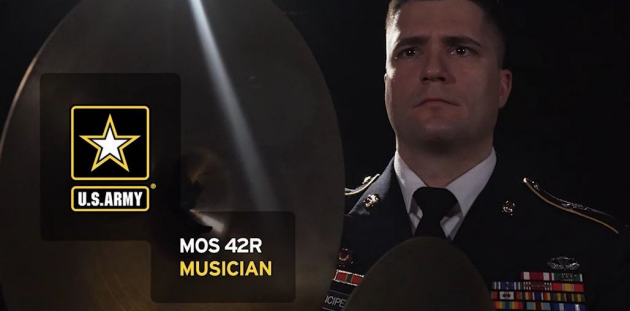Musician - 42R

- Active/Reserve:Both
- Officer/Enlisted:Enlisted
- Restrictions:None
Overview
Musicians specialize in one (or more) of the following instruments/specialties: tuba, trombone, euphonium, bassoon, electric bass guitar, saxophone, flute or piccolo, oboe, clarinet, French horn, percussion, cornet or trumpet, guitar, keyboard, vocalist, and music production. Musicians perform in a variety of ensembles ranging from ceremonial band to jazz band to small ensembles, playing all styles of music. They are primarily responsible for performing and rehearsing as a professional musician within different ensembles of an Army band.
Job Duties
Requirements
Training
Job training for a Musician requires 10 weeks of Basic Combat Training and 10 weeks of Advanced Individual Training at the Armed Forces School of Music in Norfolk, Va. Some of the training includes:
Helpful Skills
ASVAB
The Armed Services Vocational Aptitude Battery (ASVAB) is an examination that is administered by the United States Military Entrance Processing Command. It is used to determine qualification and helps predict future academic and occupational success in the military.
Compensation
See the whole list of Army Occupational Specialties here To learn more about the Army's rank structure, see our complete list of Army ranks. To see a list of military medals and decorations that can be earned by servicemembers in the Army and other branches of the military, see our list of military decorations and medals.







































































































































